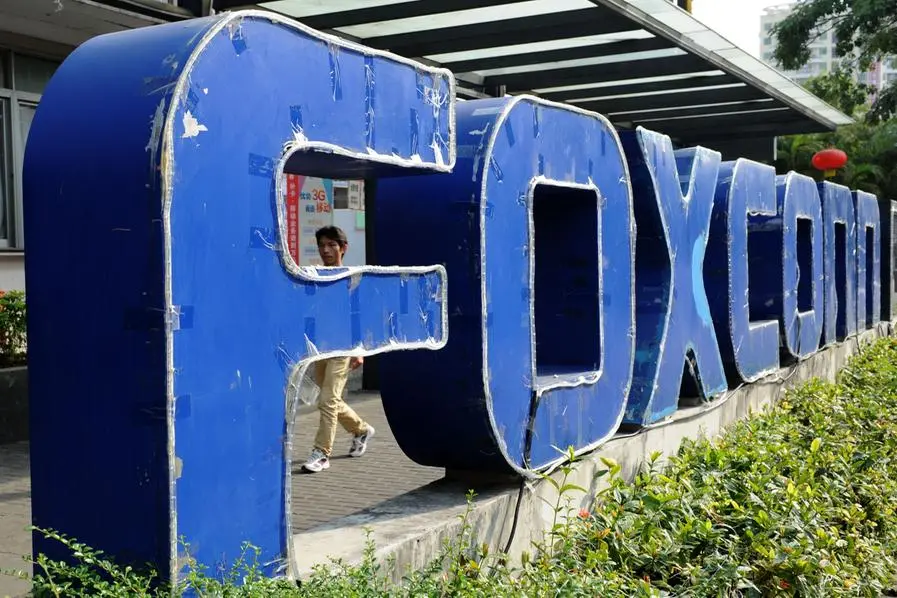PHOTO
Taiwanese electronics giant Foxconn withdrew from a $19.4 billion deal with India's Vedanta to make semiconductors in the South Asian nation owing to "challenging gaps", it announced Tuesday.
The world's top iPhone assembler signed an agreement in September with Vedanta to set up a chip factory -- which would also produce display screens for phones and tablets -- in India's Gujarat state.
The plan was to boost New Delhi's self-reliance in the technology supply chain, given that semiconductors are an essential component of nearly all modern electronics -- powering everything from coffee machines to electric cars.
But Foxconn on Thursday said "both parties mutually agreed to part ways".
"There was recognition on both sides that the project was not moving fast enough, there were challenging gaps we were not able to smoothly overcome, as well as external issues unrelated to the project," Hon Hai Technology Group -- Foxconn's official name -- said in a statement.
The deal would have seen Vedanta -- one of India's biggest mining companies -- take a 60 percent share in the joint venture, while Foxconn would have the minority stake.
Both companies had also projected that the facilities would be operational by 2024.
Foxconn will not make a loss because of the withdrawal as it "has not injected capital or fixed assets into the" joint venture, the statement said.
While Vedanta did not confirm the pull-out, it reiterated that it is "fully committed to its semiconductor fab project", adding that there are other partners in line to set up India's first foundry.
"Vedanta has redoubled its efforts to fulfill (Prime Minister Narendra Modi's) vision for semiconductors and India remains pivotal in repositioning global semiconductor supply chains," its spokesperson said, adding that Vedanta now has a licence for production-grade technology to create 40-nanometer chips.
"We will shortly acquire a licence for production-grade 28 nm as well."
The vast majority of the world's top chips are made in Taiwan -- primarily by Taiwan Semiconductor Manufacturing Company -- and in South Korea by Samsung.
To join the race for semiconductors, India in late 2021 approved a $10 billion incentive scheme to kickstart its own domestic industry by agreeing to cover up to half of all project costs.





















